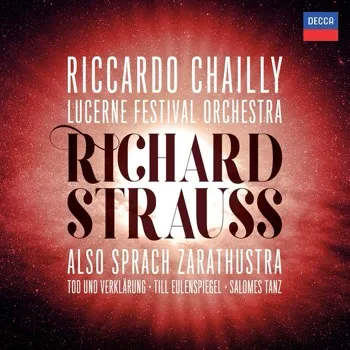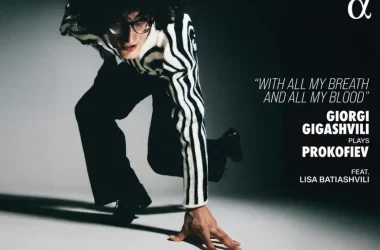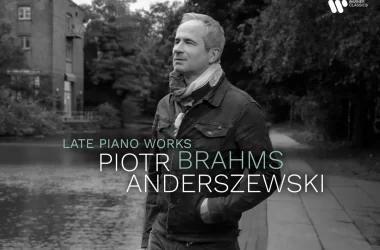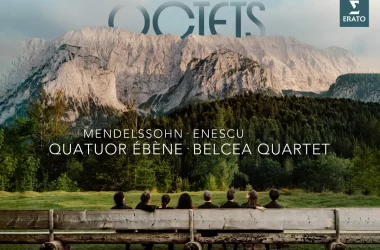The opening minutes of “Also sprach Zarathrustra” herald a sonic blockbuster recording: the engineers have produced a recording of exceptionally wide dynamic range, with a well-balanced, full orchestral sound, that also manages exceptional clarity that allows us to clearly hear Strauss‘ luxuriant writing. While the opening bars make their expected awe-inspiring impact (with the organ well integrated into the orchestral climax), it is in the following passage (Von den Hinterweltlern, 3’43”) that the engineers and orchestra allow us to fully experience Strauss’ incredible string writing, as he continually divides the strings into multiple parts that reach a peak with an opulent 30-part texture. It is one of several moments in this work that can mercilessly reveal the technical imperfections of even the greatest orchestras, but the Lucerne strings are simply glorious.

Chailly chooses generally broad tempos; those who enjoy Solti’s faster and more rambunctious performance might find Chailly’s performance overly cautious. Yet after repeated listening what impresses the most is how Chailly sees this tone poem as one movement, each section organically and inevitably flowing into the next. One tempo momentarily failed to convince (2’38” in “Von der Wissenschaft”, track 6), but was quickly forgotten during the thunderous ending climax of “Der Genesende” (track 7). Equally impressive is the playfulness Chailly and his players discover in “Das Tanzlied” (8), and the climax at the beginning of Nachtwandlerlied (9) is superbly done, as is the tuning and dynamic control of the wind players in the final moments of the piece. This is a thoroughly engaging performance, and each listening reveals new things to admire in interpretation and execution.
Tod und Verklärung is again superbly played, but Chailly and the Lucerne players lack the last ounce of transcendent emotion so readily apparent in Karajan’s final recording with the Berliner Philharmoniker. It is that inexplicable aspect of interpretation that is so difficult to write about, and so easy to romanticize: Karajan was older and in more fragile health during that recording, so did that perhaps give him a deeper sense of death and the possibility of life after it? The present performance is beautifully played and Chailly carefully prepares each emotional climax; if you do not know Karajan’s recording, Chailly’s recording would surely satisfy. But if you love this work, seek out Karajan and Berlin’s last recording – better still, find the DVD of their 1984 All Soul’s Day performance. It is a uniquely moving performance of this masterwork.
The final two works receive thoroughly winning performances. The Lucerne orchestra offers passionate and immaculate ensemble playing with fully characterful solos. In “Till Eulenspiegel” (track 14), Listen to the opening horn solo, the concertmaster’s solo at 4’23”, or the clarinet playing at 12’16” – truly, this is an army of generals. Moreover, Chailly is fully attuned to the music’s humor and somehow, even at the moment of Till’s execution, he manages to retain a sense of lightheartedness that lets us know Till will be back. ״Dance of the Seven Veils” (15) is suitably erotic and makes one wish for a recording of the complete opera from these performers.
This is an excellent live recording, with superb performances captured in exceptional sound. When Abbado reformed this orchestra in 2003, it was immediately recognized for bringing a unique joy of music-making and interpretative depth to its performances. Those qualities are readily apparent in their work with Chailly – long may this valuable relationship continue.
Richard Strauss – “Also sprach Zarathrustra”; “Till Eulenspiegel”; “Tod und Verklärung”; “Dance of the Seven Veils”
Lucerne Festival Orchestra
Riccardo Chailly – Conductor
Decca Classics, CD 4833080




















